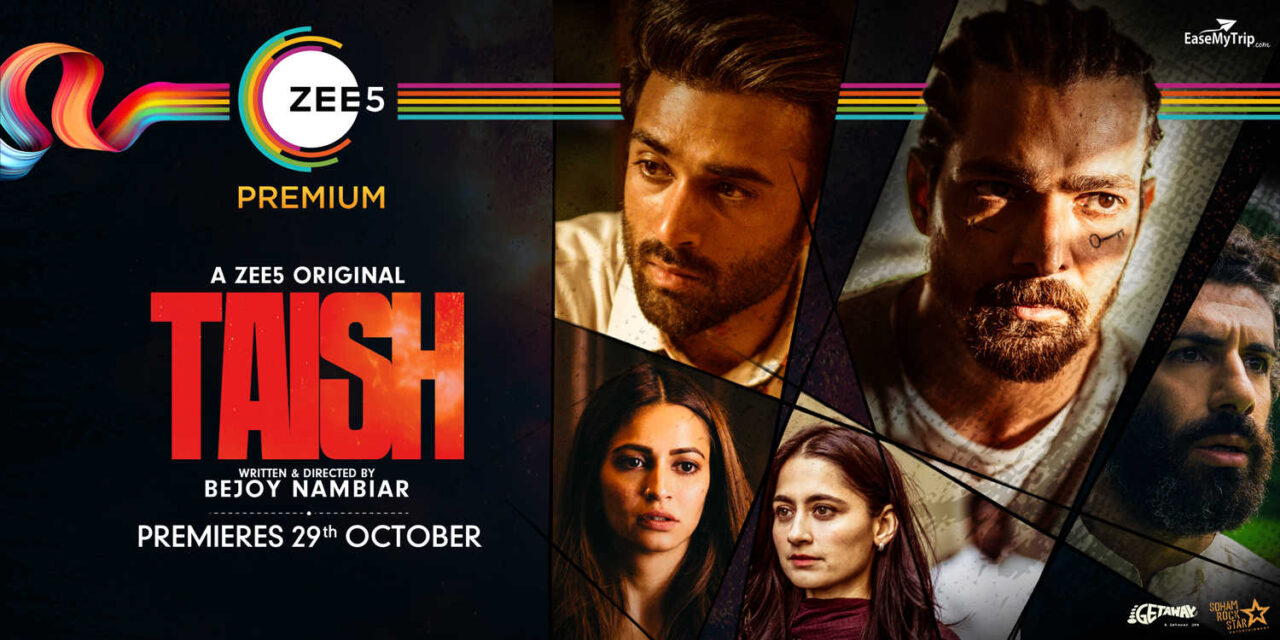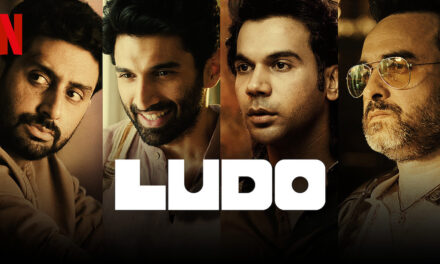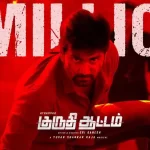Director: Bejoy Nambiar
Cast: Jim Sarbh, Pulkit Samrat, Harshvardhan Rane, Kriti Kharbanda, Sanjeeda Sheikh
Bejoy Nambiar’s Taish on Zee5 is a first. It’s been released simultaneously as a feature film and a 6-part miniseries. Given that the full run time was an agreeable 2 hrs and 23 minutes, I just caught the feature film version directly.
Two weddings form the pillars of Taish’s plot. But funnily, the most complicated relationships in this film aren’t exactly of a romantic disposition, though this is a story where the main protagonist (an Indian Hindu) has a Pakistani Muslim girlfriend and the antagonist has his lover stolen by his own elder brother who’s marrying for a second time. The complications are reserved for two brothers who don’t see eye to eye and two friends who have different ideas about the notion of ‘an eye for an eye’.
The story is set in London. The protagonist is a thirty year old doctor Rohan (Jim Sarbh) and he’s invited his friends, including his best mate Sunny (Pulkrit Samrat), to his brother’s wedding at a countryside estate. The antagonists are Pali (Harshvardhan Rane) and his elder brother Kuljinder (Abhimanyu Singh), who’re from a notorious Punjabi gangster family in Southall (a place often referred to as Little Punjab in London). The air is sucked out of this big fat Indian wedding, when Sunny gets involved in a violent incident with Kuljinder, who’s a guest at the wedding and also has a dark connection with Rohan’s past. Kuljinder is left paralyzed and confined to a wheelchair. Pali gets one back almost immediately to avenge Kuljinder, taking the life of Rohan’s brother and grievously injuring Sunny.
As is often the case in sprawling dramas like Taish, revenge is the theme that propels the story forwards. However, I found the title of the film interesting too. If I’m not mistaken, Taish refers to furious anger, and hot headedness that always accompanies it. The protagonist Rohan here is the antithesis of this. He’s faced his share of violent tragedy in life but has since made peace with it. Its Sunny and Pali on the other hand that really symbolize the meaning of Taish. We know they’re both hot heads (Sunny describes himself as a matchstick in a fireworks factory)! But it gets fascinating when you begin tracing the real source of their ‘taish’.
Sunny attacks Kuljinder to avenge his friend Rohan’s past, or so he says. It soon becomes apparent that this is not the full story. Personal tragedies and secrets have haunted Sunny’s life as well and this was just one trigger needed to set the accumulated fireworks going. He’s basically overcompensated for all his own past injustices by taking it out on Kuljinder, overwhelmed by anger, and not once pausing to reflect on the grave consequences his actions could have.
Pali’s story is similar. He can’t stand Kuljinder and has even actively exited from the family business. So what makes him suddenly pivot and decide to avenge injustices against his brother? He talks about family honour and personal bonds, but it’s clear he too just needed an agenda to channel his anger towards, anger that actually stemmed from having had the love of his life snatched from him. For Pali and Sunny, revenge is just an excuse that helps paint over cracks in their own mental makeup.
Luckily, you don’t really have to read so closely between the lines to enjoy Taish. The screenplay is vibrant and riveting. A part of me felt bad for Bejoy Nambiar, that this film had to be released on OTT. There were at least three or four scenes where theatre audiences would have erupted with woots and whistles, but sadly such are the times we live in today. The acting was solid across the board, even from the support cast. This was a rare film where gangsters actually came across as formidable and chilling and were not reduced to caricaturish portrayals. Saurabh Sachdeva who’s terrific in the role of Sukhi, Pali’s menacing right hand man, deserves special mention. I also loved how Bejoy brought the whole sub-continental diaspora in London alive. The intricacies of this milieu were brought out authentically, not least through the colourful romance between Rohan and Arfa, a Pakistani surgeon (Kriti Kharbanda). The score by Gaurav Godkhindi and Govind Vasantha elevated all this greatly too, with splendid tunes alternating seamlessly between the romance and action sequences.
Taish is a solid film that delivers on its premise. It is essentially an examination of a contradiction all of us face at some point in life. Is it better to forgive and move on or do we gun for revenge? The film does provide an answer through Rohan. Among all the characters, he’s the only one standing tall (or even left standing) in the end. What exactly do we achieve through revenge, he asks Sunny frequently. To him, like the Thames river that forms the backdrop of this film, all that has occurred in the past, however painful it might have been, is all just water under the bridge.
Overall rating: 3.5/5










